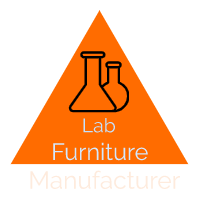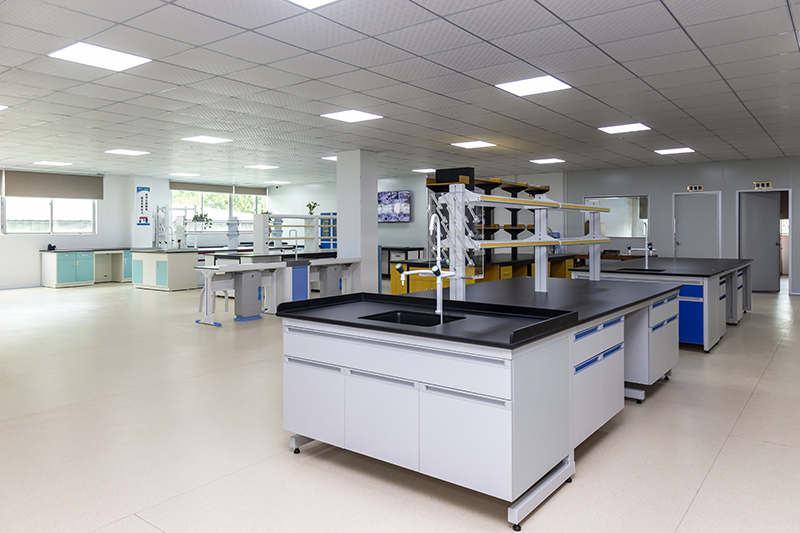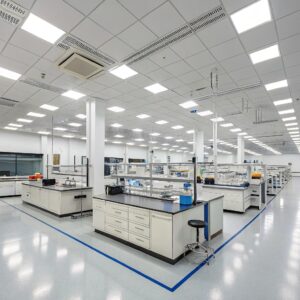What Is Modular Laboratory Furniture
Modular laboratory furniture is a versatile and adaptable solution designed to meet the evolving needs of modern laboratories. Unlike traditional fixed lab furniture, modular systems consist of interchangeable components that can be easily reconfigured or expanded.
This includes workbenches, storage units, shelving, and cabinetry that can be moved, added, or adjusted without major renovations. The key advantage of modular lab furniture lies in its flexibility, allowing labs to adapt to new projects, changing team sizes, or updated equipment without significant downtime or cost.
Why Has Modular Laboratory Furniture Become Trendy In Laboratory Building
Modular laboratory furniture has gained popularity due to several compelling reasons:
Flexibility: Labs are dynamic environments where requirements can change rapidly. Modular furniture supports this need for adaptability.
Cost-effectiveness: While the initial investment might be higher, the ability to reconfigure furniture without needing new purchases saves money in the long run.
Durability: Not all modular systems are created equal. Lower quality options might not withstand heavy use, so it’s crucial to invest in high quality, durable pieces.
Is There Any Disadvantage For Modular Laboratory Furniture
While modular lab furniture offers numerous benefits, there are a few potential downsides to consider:
Initial Cost: The upfront cost can be higher compared to traditional furniture. However, this is often offset by long-term savings.
Complexity: Designing a modular system that perfectly fits your needs can be more complex and may require professional input.
Durability: Not all modular systems are created equal. Lower quality options might not withstand heavy use, so it’s crucial to invest in high quality, durable pieces.
What Kind Of Laboratory Can Implement Modular Laboratory Furniture
Modular laboratory furniture is suitable for a wide range of lab environments, including:
Research and Development Labs: Flexibility is key as projects and focus areas can shift quickly.
Educational Institutions: Schools and universities benefit from modular systems to adapt classrooms and labs for different courses and experiments.
Healthcare and Clinical Labs: The need for different setups to accommodate various tests and procedures makes modular furniture ideal.
Pharmaceutical and Biotech Labs: These labs often undergo rapid growth and change, requiring adaptable solutions.
Quality Control and Testing Labs: Modular systems allow easy reconfiguration for different testing protocols and equipment.
How To Make My Modular Laboratory Furniture Expandable In The Future
To ensure your modular laboratory furniture remains expandable:
Plan for Growth: Consider future needs when designing your initial layout. Leave room for additional modules and workstations.
Choose Compatible Systems: Select modular furniture from manufacturers that offer a wide range of compatible components and accessories.
Standardize Components: Use standardized components to ensure new pieces can easily integrate with existing furniture.
Invest in Quality: Durable, high quality furniture will better withstand reconfigurations and expansions over time.
Consult with Experts: Work with designers and manufacturers who can help plan for future needs and ensure your system is scalable.
How To Plan Modular Laboratory Furniture Purchasing
Effective planning is essential to make the most of your investment in modular lab furniture:
Assess Your Needs: Start by evaluating your current and anticipated future needs. Consider factors such as lab size, number of users, types of experiments, and equipment requirements.
Set a Budget: Determine your budget, keeping in mind both the initial cost and potential long-term savings.
Research Options: Look for reputable manufacturers and suppliers who offer high quality, customizable modular systems.
Consult with Professionals: Engage with designers or consultants who specialize in lab furniture to help you plan and select the best solutions.
Plan for Flexibility: Design your layout with flexibility in mind, ensuring you can easily reconfigure or expand as needed.
Think Long-term: Consider the durability and longevity of the furniture, as well as the availability of compatible components for future expansions.
More information about how to choose the lab furniture, please refer to this article:
The Ultimate Guide To Choosing The Best Lab Furniture For Your Needs
By following these guidelines, you can create a functional, adaptable, and futureproof laboratory environment with modular furniture.




